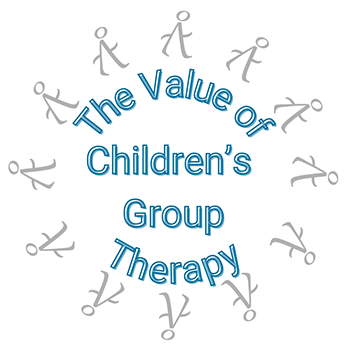The Value of Children’s Group Therapy

At BPAR, we are strong believers in the power of group therapy. Over the years, we’ve added groups for adopted children between the ages of 8 and 18. These groups are organized by age and development to ensure that adoptees meet with other children with whom they have a lot in common both socially and emotionally. Our clinician facilitators generally meet monthly with their groups.
Group therapy can be a great supplemental treatment to individual therapy, but also stands alone as an incredibly powerful and affirming intervention for people of all ages.
Why Is Group Therapy Good for Children?
Acceptance
In a support group setting, children gain a feeling of acceptance from their peers that they may not normally receive. This can be a comfort and a sigh of relief for kids who might not know many other adoptees their age—and for parents!
Empathy
Kids can learn about how they can help their peers by sharing. This can help build empathy.
Self-Esteem
Group therapy helps kids build self-esteem. It provides a healthy place to take small, measured risks and see immediate gains. Parents have often told us how their child “opened up” in the comfort of the group space. Pre-teens often struggle with self-esteem, and groups are a great way to help them feel more confident.
Expression
Group therapy can help kids find new ways to talk. We often have kids role-play the lessons and themes we discuss.
Self-Regulation
Group therapy helps kids learn techniques to self-regulate their emotions. This can be a really nice natural way for kids to practice listening as well as not interrupting and gaining frustration tolerance tools while they wait their turn and practice hearing from their peers!
What Can Children Expect in Group Therapy?
For in-person groups, they can expect a small group of kids around their age in a big play room with at least one group leader from BPAR’s clinical team. The group will start with an ice-breaker game to “break the ice” to allow the kids to get to know each other. It’s important to make sure kids feel comfortable, so they can expect play—even silliness—to help them feel comfortable!! They can expect that they always have the right to keep things private. This includes children knowing they do not have to talk about adoption if they don't want to. They can also expect to be heard and be listened to, and that the leader will help lead the group and make rules so that everyone is respected and feels safe. There will be a semi-structured activity like art or a game in the middle, then an end to the group.
Written by KC Craig, LICSW
Boston Post Adoption Resources
Resources
For more insight into the advantages of Group Therapy and what to expect, check out:
If you are interested in learning more about Individual Therapy for your child, read: